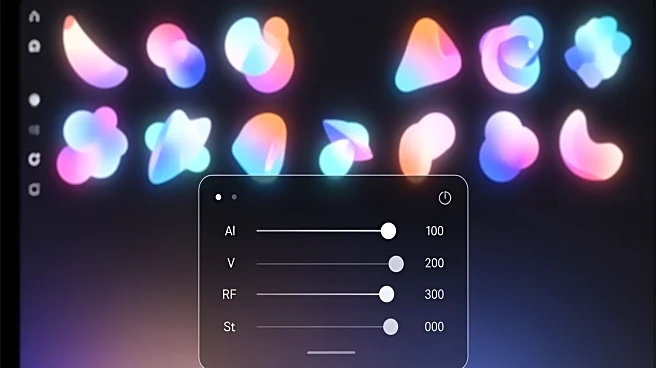What's Happening?
Pinterest has responded to user complaints about the prevalence of AI-generated content, termed 'AI slop,' by introducing new controls that allow users to limit the amount of AI content in their feeds. Users can now personalize their feeds to restrict
generative AI imagery in select categories, such as beauty, art, fashion, and home décor. The company plans to make its existing GenAI content labels more noticeable and will introduce more categories based on user feedback. These tools are available in the app's 'Settings' menu under 'Refine your recommendations.' The rollout will begin on the website and Android, with iOS users receiving the update in the coming weeks.
Why It's Important?
The introduction of these controls is significant as it addresses growing concerns about the impact of AI-generated content on user experience and Pinterest's reputation. By allowing users to filter AI content, Pinterest aims to maintain user engagement and satisfaction, which are crucial for its business model. This move reflects a broader trend in social media platforms to balance AI innovation with user preferences, ensuring that feeds remain inspiring and relevant. The ability to personalize content could enhance user loyalty and attract more users who are wary of AI's influence on digital spaces.
What's Next?
Pinterest's new tools could lead to increased user engagement and satisfaction, potentially boosting its market position. The company may continue to refine these controls based on user feedback, expanding the categories available for AI content restriction. Other social media platforms might follow suit, implementing similar features to address user concerns about AI-generated content. Pinterest's approach could influence industry standards for managing AI content, prompting discussions on ethical AI use in social media.
Beyond the Headlines
The introduction of AI content controls raises questions about the ethical implications of AI in digital spaces. As AI-generated content becomes more prevalent, platforms must navigate the balance between innovation and user autonomy. Pinterest's move could spark broader conversations about the role of AI in shaping online experiences and the importance of transparency in AI usage.

















